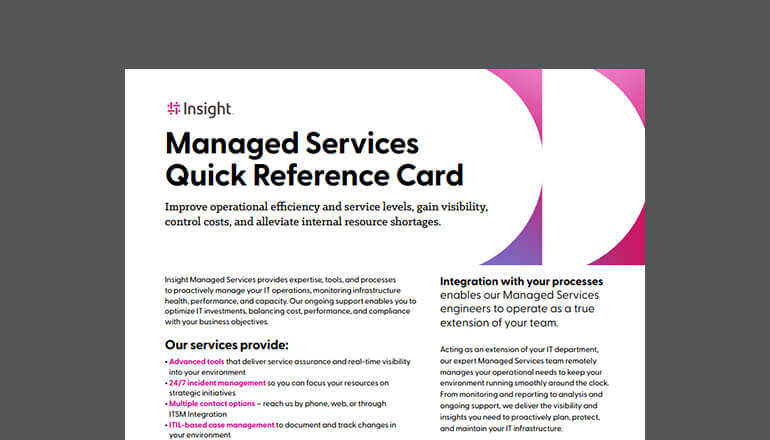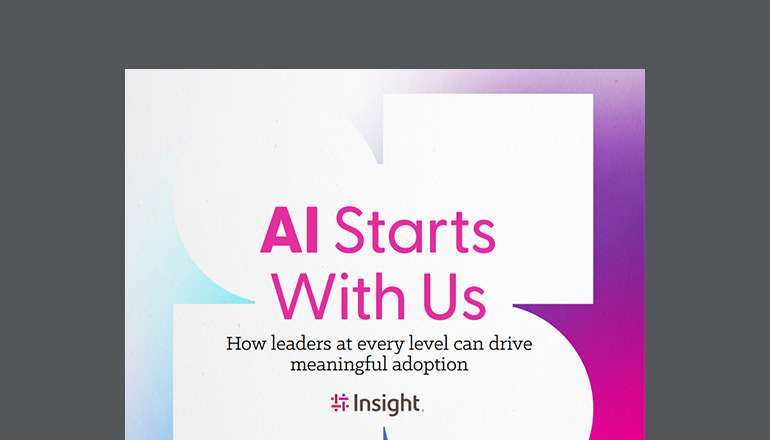Blog Top Ethical Considerations for Your AI
By Carmen Taglienti / 30 Mar 2023 / Topics: Artificial Intelligence (AI)

AI ethics: What is responsible AI?
With 85% of organizations indicating they’re using AI to drive business insights and other efficiencies, it’s clear AI is becoming a mainstream priority for businesses to leverage. It’s more important than ever for businesses to think about responsible AI and how they’re deploying theirs. With the power of AI, some leaders may feel they have an obligation to approach this technology with extra care. For all organizations, there are real ethical considerations that need to be addressed as they plan, develop and manage their AI. These ethical considerations are more than just a question of morality — they can be part of compliance requirements and even impact a business's success and/or end-user experience.
Intentional and reasonable data collection
A central part of AI is the collection of data for not only training the model but for the tasks your algorithms may be assigned (such as curated product recommendations). Organizations need to ask themselves whom they are collecting their data from and why — these questions are essential when it comes to compliance around data collection and the consent required for the purposes for which it can be used. Additionally, we are starting to see criteria around the duration that data can be kept based on the purpose it was collected for.
Besides the moral implications of collecting data without proper consent, it can also be costly — financial and reputation-wise — to businesses that don’t follow these regulations. Lastly, part of ethical data collection and putting that data to work is considering if your sample is representative of your population and if the correct sampling techniques are being deployed. Without this, false and unintended conclusions may be drawn by AI models, and/or bias could be introduced with a skewed sample set.
Exploring the parameters of data use
In addition to data collection regulations, there are regulations around how data is used and protected. Once an organization has collected sensitive data on users, it has a responsibility to keep confidential data private internally, as well as put required safeguards in place to prevent hacks and leaks. With the use of data for AI initiatives, businesses may want to also consider the transparency of how they are using data. While there isn’t strict compliance around transparency, this can be important to users and public opinion at large. Lastly, one of the larger ethical implications of AI is the potential impact. Is the impact of the algorithm positive, and if it isn’t, can it be contained? As the use of AI evolves and expands, this may be the most important question organizations ask themselves before deploying the technology.
Addressing bias in your AI
Even with the upfront ethical considerations already explored, the ethics conversation continues once the AI model is being implemented and activated. The next piece of the puzzle is all about bias. Bias in this context would mean the AI provides insights that might be false or misleading for the organization, or the insights are incorrectly addressed. There are three parts of the AI development process that should be examined for bias:
- Creation
When creating the model, are the specialists inadvertently infusing bias into it? This is often unintentional, but still an issue that the specialists and leadership should be cognizant of. If bias is established this early in the process and not caught, it can negatively impact the insights a business receives from the model. - Training
When AI models are being developed, there is always a stage where the model is trained using data. However, depending on how the data was collected and the sampling method used, it can train the model to draw incorrect conclusions. Once again, this type of bias can plague the insights gathered from AI down the road and have negative business consequences. In the curation of product recommendations, it may mean that a certain segment of customers receives noticeably subpar recommendations and no longer wants to use the feature or business. - Interpretation
Once data is collected and AI is applied, there can still be issues in interpretation. If the people who are tasked with interpreting the conclusions from the AI infuse their bias (even unintentionally), organizations will still suffer from less valuable insights than they were seeking. For example, a facial recognition algorithm might be less accurate for certain features or skin tones, leading to false identifications. This is due to the data used for training the algorithm, which can often be biased because it is based on the interpretation of results by humans who were creating the model.




